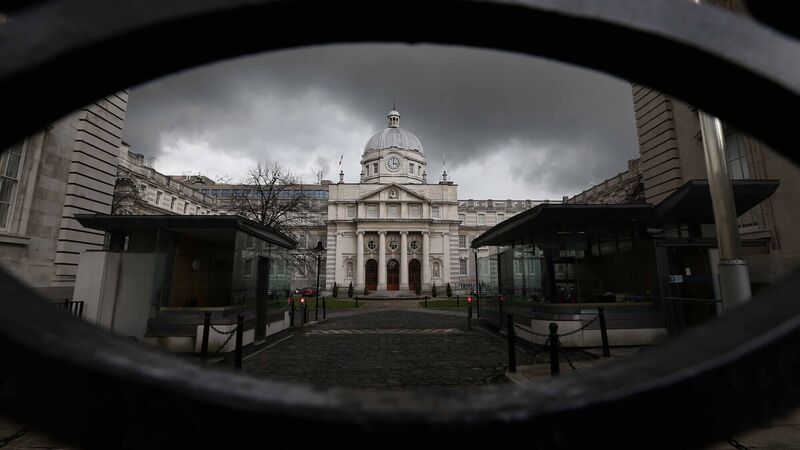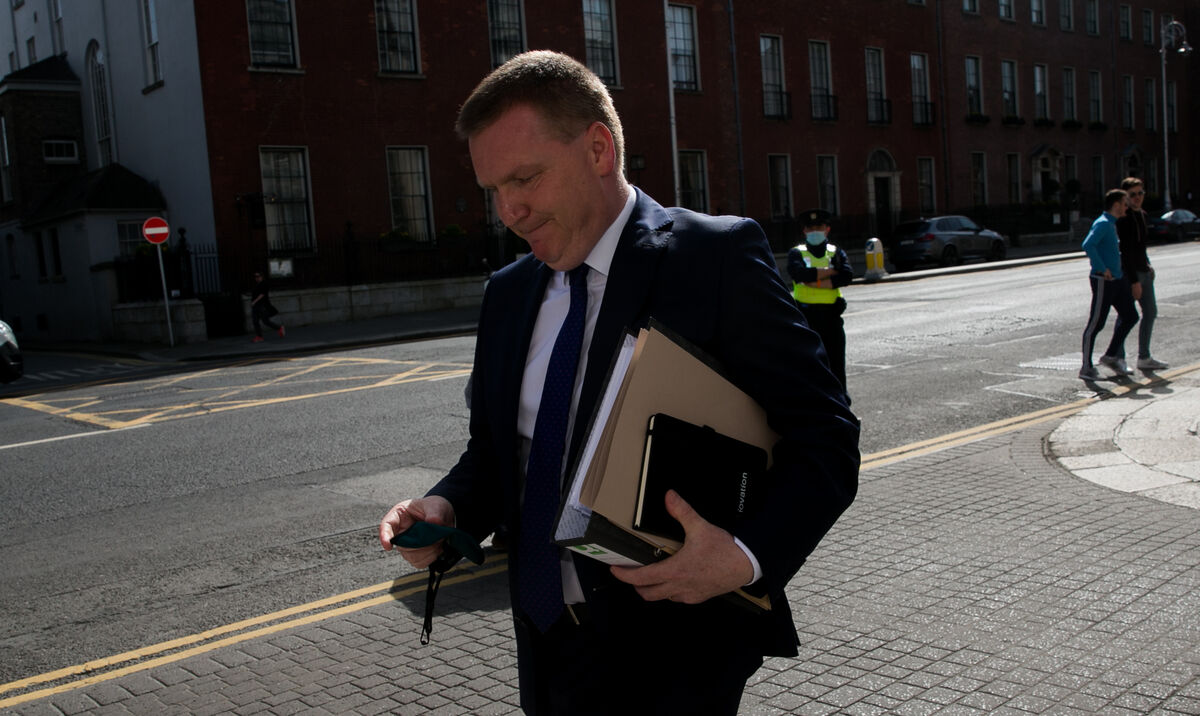Government departments face return of Troika-style spending controls

Any attempt by ministers to keep Covid-19 funds into next year “will not be entertained” as the Government looks to slash at least €12bn in spending.
Troika-style budget controls have been slapped on the biggest government departments such as health, education and social protection as part of a need to cut an estimated €12bn from State spending.
Workers are to begin transitioning back from the €350 pandemic unemployment payment (PUP) to the normal jobseeker’s rate of €203 a week from June, as Public Expenditure Minister Michael McGrath looks to wean the country off emergency Covid-19 spending.
Any attempt by ministers to keep Covid-19 funds into next year “will not be entertained” as the Government looks to slash at least €12bn in spending, Michael McGrath has warned.
At a Cabinet meeting in recent days, Mr McGrath “laid down a major marker” to his colleagues saying they are going to be getting back to a situation where "spending will be tightly controlled".
He told the : “The Covid-related expenditure is a type of emergency spending and therefore will be unwound over time. We are dealing with departmental budgets that of necessity have expanded hugely in the past year and that brings very significant challenges in terms of how they are managed effectively.”
It is understood that:
- From this week tough spending reporting requirements used by the IMF-led Troika when in Ireland have again been placed on large departments by Mr McGrath to make them account for their actions and also to prevent them “hoarding” funds;
- Mr McGrath warned ministers that the emphasis of new memos to Cabinet “shouldn't always be on additionality” in terms of coming and looking for more money.
- He made clear that “there should be no assumption that there will be money there to implement all of these recommendations,” one minister said.
- Any scope for additional funds in October’s budget will be “very modest”.
- €12bn in Covid emergency funding set aside for 2021 will run out by the end of June, resulting in “many more billions” being needed to protect the economy.
- A special Cabinet meeting is due in the coming weeks to finalise the plan to 'taper' away the PUP, in a series of steps over several months as reopening progresses.
- Mr McGrath has identified a need to reduce the generous PUP payments as they are creating a major issue for businesses looking to reopen as staff say they are “better off not working”.
Under plans published by Mr McGrath earlier this month, Covid-related spending was due to be cut by €8bn next year from €12bn to €4bn, but with the need to avoid a cliff edge in July, sources have said the amount to be reduced will be “many billions higher”.
While it is all dependent on the virus and how long Ireland is under some form of lockdown, one source said it could be over €12bn.

In probably the strongest warning to ministers at Cabinet, Mr McGrath said he and his officials have drawn a very clear line between Covid spending and core spending, to make it easier for the Covid-related spending to be unwound over time.
However, Mr McGrath knows that particularly in other areas such as transport, education tourism and sport, there will be major efforts by ministers Eamon Ryan, Norma Foley and Catherine Martin to hold on to Covid spending in non-Covid time.
“But that won't be entertained, and having that clear delineation between the two will prove to be very important,” Mr McGrath has made clear to his ministerial colleagues, according to sources.
Mr McGrath told the : “I have put in place an enhanced reporting system which will act as an early warning mechanism not only for instances where spending is running ahead of target but also, critically, to monitor any slowdown in delivering the public capital programme.”
In a warning to his colleagues about requests for more money, Mr McGrath said: “The focus shouldn't always be on additionality when it comes to spending. Right across government, we need to see an emphasis on reforms and ensuring that we are getting good value for the people's money we are spending."
His comments come as one further Covid-related death and 429 new cases of the disease have been reported by the Department of Health.
Today, outdoor sports facilities such as golf courses and tennis courts are now able to reopen, along with zoos, pet farms and heritage sites. Non-contact outdoor training for underage sports can resume in pods of 15, while the number of people who can attend a funeral can increase from 10 to 25.





